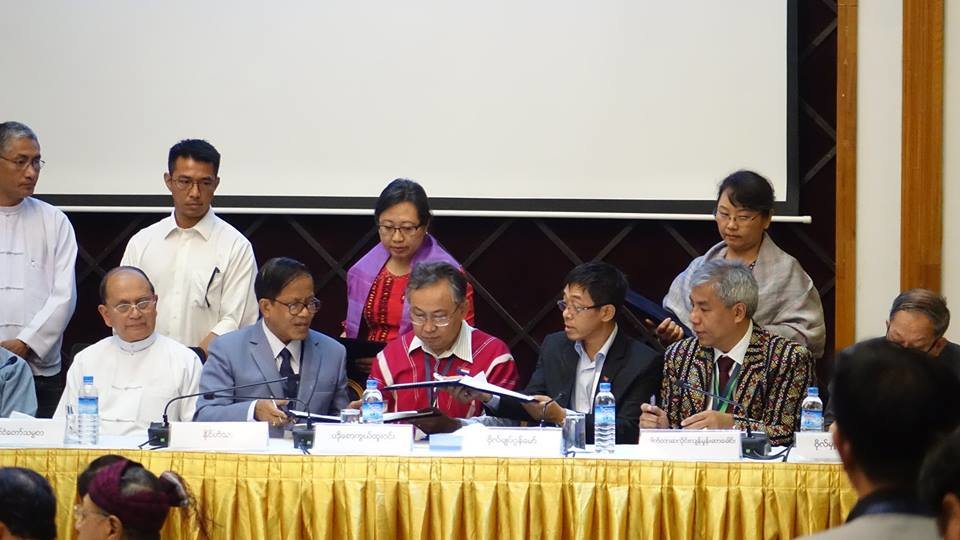After the signing of an agreement on the text of a draft Nationwide Ceasefire Agreement (NCA) on 31 March was congratulated by domestic and international observers, DVB spoke to a key leader in the ethnic bloc’s Nationwide Ceasefire Coordination Team and the United Nationalities Federation Council, Khun Okker, to find out what now lies ahead on the road to a peace deal.
Q: Can you tell us the UNFC’s stance on the agreement signed between the NCCT and the government’s Union Peace-Making Work Committee on 31 March?
A: After the NCCT delegation returned, the UNFC held an analysis meeting about the reaching of the NCA draft, and decided to accept the outcome. There were no objections to be made. But this is only an initial outcome. It now lies with the leadership of the ethnic armies to finalise an agreement with the government, and it is within their mandate to implement the points in the draft and sign the final NCA.
The NCCT’s mandate is close to ending after handing the NCA draft to their respective leaderships, and the final decision will have to be made by the UNFC and the ethnic armed groups conference. So right now, we are planning to immediately call an ethnic armed groups’ conference involving a wide range of groups, during which the NCCT will hand their mandate back.
Q: There is confusion among the public that NCA has been signed and peace has arrived. Can you give a thorough clarification to clear up the confusion?
A: Firstly, it is necessary need to understand the mandate of the NCCT, which is merely to achieve a draft agreement – but they have no authority to sign that agreement on behalf of the respective ethnic groups. The responsibility to sign the NCA lies with the top leadership of the ethnic armed groups. The agreement signed by the NCCT was only an acknowledgement of the reaching of the draft, prior to presenting it to the respective leadership.
[related]
This signing was attended by the president himself, so both we and the Tatmadaw [Burmese military] representatives had to shelve certain issues that we planned to have some debate about, and just sign the agreement, following the president’s lead.
From our perspective as ethnic armed groups, there can be no harm in signing that. The majority of our demands and propositions have been included in the draft, and we believe that this is as far as we can push. But still, the final decision to sign the NCA has to be made by our top leadership – and they may suggest removing or adding certain clauses – but I believe that there won’t be any backtracking on the development achieved for far.
Q: Will there be any major changes to the draft by the ethnic groups’ leaders?
A: I don’t think so. They may suggest amending or adding some points – there are several propositions the NCCT has yet to finalise negotiation on, such as including international witnesses in the signing and monitoring of the NCA, and our leaders may want to reiterate these propositions.
Q: The UNFC statement said there are implementations that need to be made before signing the final agreement. What are those implementations?
A: In order to sign the final agreement, the clashes, aggression and conflict on the ground must be completely stopped, or at least reduced. If the decision makers involved can be generous and create an environment that will allow signing the NCA, then this can bee seen as part of the implementation. This will make it easier for the armed groups’ leaders to sign the NCA.



